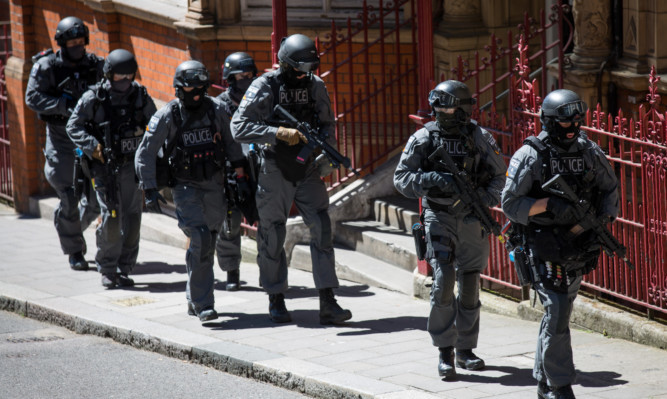The UK’s counter-terrorism strategy is making it more difficult for Muslim leaders to root out extremism by inhibiting open dialogue, the director of the Muslim Council of Scotland has warned.
The Contest Prevent strategy aims to empower authorities “to challenge extremist speakers” and support communities to “effectively rebut terrorist and extremist propaganda”.
But Dr Salah Beltagui said the strategy “inhibits the community from being honest, direct, and saying what they believe in” so it takes “some time to find out if somebody is going down the vulnerable way”.
The Muslim Council of Scotland (MCS) held a closed-doors seminar with civic leaders and community groups on challenging extremism at Glasgow City Chambers.
Speaking outside the seminar, Dr Beltagui told the Press Association: “The communities and the Government are working to reduce or stop extremism.
“The people who are delivering services will be careful what they say, and also they will require some time to find out if somebody is going down the vulnerable way.
“That also inhibits the community from being honest, direct, and saying what they believe in.
“It’s not just our view. David Anderson QC, who has been appointed by the Government to review anti-terrorism policies, has said Prevent needs to be reviewed independently.
“Even Keith Vaz, chair of the Home Affairs Committee in the UK Parliament, has said that we need to look at this legislation again, and is also advising the Government and the communities because so far the Government put in this legislation with very minimum consultation with the community.
“If we work together, and this is why we have arranged this session in Scotland, we will find better ways for improvement and development.
“We invited someone from the UK Government and they didn’t supply any speaker – they said it is devolved.”
Counter-terrorism policy is reserved to Westminster but it is implemented by Scotland’s devolved institutions, including Police Scotland, the Scottish Government and councils.
Scottish Justice Secretary Michael Matheson said: “The way UK-wide legislation is applied in Scotland is different because it is delivered through devolved organisations that are accountable to Scottish ministers, and that is an approach that is recognised by individuals.”
Glasgow City Council leader Frank McAveety said: “Glasgow has been a more tolerant place than perhaps other parts of the UK, but that doesn’t obscure the fact that there are still some people in this city with negative attitudes.
“There are people that will stereotype and there are people that will judge so we need to work on that.”
He added: “I know that the MCS want to identify better paths, better choices, better ways of doing things so that people are not attracted to some of the attitudes and ideologies that clearly hurt each and every one of us.”
